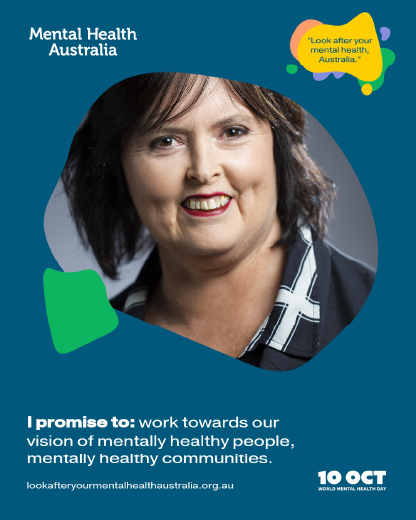Invitation from the National Mental Health Commission - to Vision 2030 webinars to learn more about Vision 2030 and get involved
The Commission is connecting with all Australians on the Vision 2030 for Mental Health and Suicide Prevention.
The National Mental Health Commission (NMHC) is stretching their thinking to envisage the long-term future when Australians at risk of, or experiencing, mental health concerns and suicidality can access a connected and well-functioning system.
The NMHC is leading the development of Vision 2030 Blueprint and Roadmap (Vision) which will provide a framework through which current recommendations, future strategies and plans can be viewed to ensure consistent approaches towards agreed goals. It covers research, prevention, early intervention, treatment, recovery and multi-sector approaches to psychosocial wellbeing.
The NMHC is currently undertaking phase three, development of an implementation roadmap. For more information on the development process so far please visit the NMHC website.
As such, they would like to invite you to participate in a consultation program to inform the content and recommendations of the Vision 2030 Roadmap via the following webinar events:
- Mental Health Sector webinar - Thursday 17 September 2020, 11:00am - 12:30pm
- Consumer and Carer webinar and Q&A - Friday 18 September 2020, 1:00 - 2:30pm
To register your interest in Vision and to receive the link for the upcoming webinars, please register as either an individual or an organisational representative.
Read more
Supporting the physical health of older people’s mental health service consumers: practical tips, research and practice improvement
This webinar will provide practical advice and the latest research evidence on improving the physical health of older people living with mental illness. Building on what we know and what we have, the session will include practical tips for practice improvement work, based on experience to date in this project, and lots of opportunity for questions and discussion. It will describe the overall project approach, building on previous statewide OPMH practice improvement work in NSW.
It will include snapshots from 3 local practice improvement projects, each of them building on existing resources or approaches in the area of improving the physical health of older people with mental illness using a ‘start where you can’ approach.
When: Tuesday, 15 September 2020 at 12pm.
Read more
Addiction and Mental Health Services Therapy Capability Framework
Metro South Addiction and Mental Health Services has created an evidence-informed framework to strengthen their workforce.
The Addiction and Metnal Health Services Therapy Capability Frameworks (TCF) highlights Therapeutic Pillars which represent specific therapies and interventions (Consumer, Carer and Family engagement, Trauma Informed Care, Physical Health Care and Cognitive and Behavioural Therapies) to guide targeted areas of health provision offered at Metro South Addiction and Mental Health Services.
The Therapy Capability Framework can be used by individual staff and organisations as a process to understand their current workforce capabilities and plan for the future.
Read more
TheMHS Perth Conference is Going Virtual!
It has never been more important for our mental health community to connect, learn and grow. While the challenges of COVID-19 now preclude TheMHS from having a face-to-face event in Perth, they’ve had such a fantastic response to their Call for Abstracts that they are taking the event online.
All the things you love about TheMHS conferences will still be there – outstanding speakers, engaging content, creative sessions and yes, even networking! TheMHS are determined to bring you the very best in a virtual conference experience and to deliver easily digestible ‘blocks’ of content. That means the conference will now be accessible to the many of you affected by travel restrictions.
TheMHS believes this is the safest, most responsible and inclusive way to bring you an inspiring TheMHS Perth Conference 2021. So, if you haven’t already, put 9-12 February 2021 in your diary.
Read more
COVID survey for people with lived-experience of BPD
The COVID-19 outbreak has led to considerable changes to our economy, society and healthcare system. Apart from the general community stress related to COVID-19 itself, we’ve needed to adapt to a range of challenges during the outbreak. Isolating from friends, relatives and broader society as well as navigating the rapid shift of in-person mental healthcare services to telehealth, have imposed additional stressors on vulnerable people. The early consequences of these recent and dramatic changes at a population level are unknown.
This survey is a joint collaboration between the Australian BPD Foundation and Spectrum Personality Disorder Service. If you live in Australia and have a diagnosis of BPD (or identify with the symptoms of BPD), you are invited to share your experiences of mental health support and treatment you have received from public, private and community health services using telehealth since the restrictions came into effect.
Read more
|









